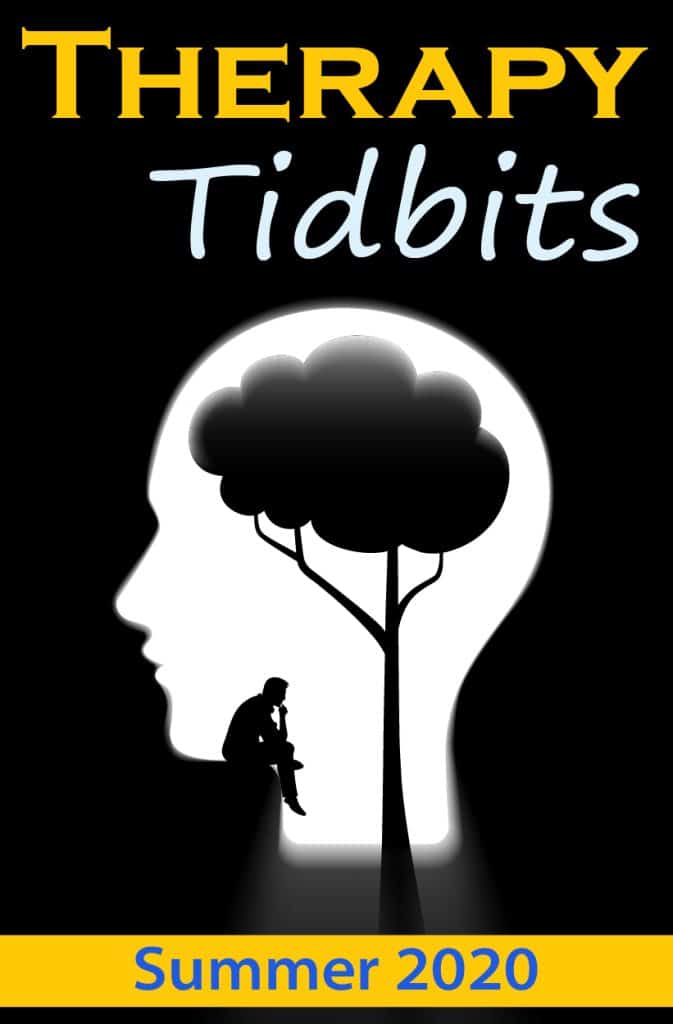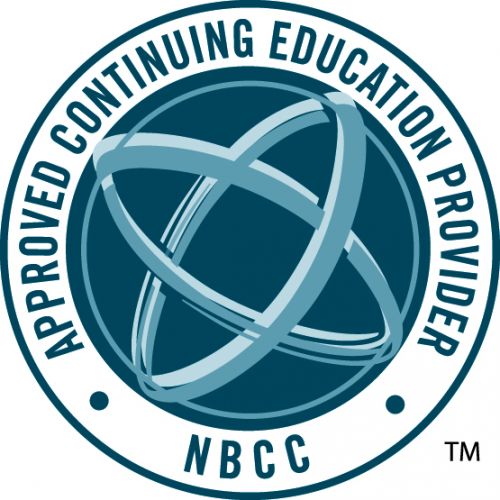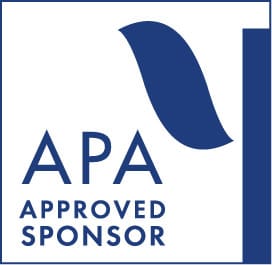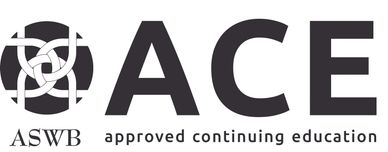Therapy Tidbits – Summer 2020
The National Psychologist
$19.00 Original price was: $19.00.$9.50Current price is: $9.50.
 Introductory
Introductory
 Online
Online
Course Abstract
Therapy Tidbits – Summer 2020 is a 1-hour online continuing education (CE) course comprised of select articles from the Summer 2020 issue of The National Psychologist, a private, independent, quarterly newspaper intended to keep psychologists informed about practice issues. The articles included in this course are:
- Psychologists Pivot to Teletherapy as Pandemic Takes Hold – Practitioners share their positive experiences of moving to tele-therapy and discuss the obstacles that must be overcome in moving to the online format.
- COVID-19 Brings Change to Behavioral Health for Older Adults – Discusses the ways in which clinicians have adapted practice to accommodate the needs of older patients and ensure best care while providing services through teleheath.
- Teletherapy Tips – The National Psychologist’s list of recommendations from psychologists across the country for conducting E-therapy sessions.
- Deconstructing Competitive Commitments – Explains three types of competitive commitments and explains how deconstructing them can help patients identify any inappropriate protective frames that might be contributing to the competitive commitment at hand.
- How to Ethically Increase Access to Care During COVID-19 – Highlights the importance of thoughtfully navigating the ethics of billing and Payment during the pandemic.
- Therapy in the Time of COVID-19: A Look at One Ethical Issue – Provides a decision-making model that can guide psychologists based upon principle-based ethics when faced with a patient who expresses an intent to circumvent public-health measures and place the well-being of others at risk.
- Psychologists Should Help Victimizers Understand Their Past – Explores the importance of helping victimizers (internalizers and externalizers) confront their past, in order to start healing.
- We Are All Victims of the ‘Attention Economy’ – Reminds us of the hidden manipulation techniques companies use to draw us in and hold our attention when using social media and apps.
- Staying Together Apart: Artistic Approaches to COVID-19 – A look at how psychologists and charities in Scotland are supporting creative activities to help patients during the pandemic.
- ‘Please Don’t Tell My Surgeon’: Managing Privacy, Confidentiality in Integrated Healthcare Settings – Provides an overview of ethical challenges psychologists may face when working in an integrated healthcare setting.
Course #11-37 | 2020 | 19 pages | 10 posttest questions
Learning Objectives
- List three advantages and disadvantages of using teletherapy in the COVID-19 era
- Identify the three protective frames that may affect a person’s ability to resolve a competitive commitment
- Explain how psychologists can ethically support clients who have difficulty paying for services during COVID-19
- Describe the ethical dilemma arising in the treatment of a patient who dismisses concerns about COVID-19 and expresses intent to circumvent public-health instructions
Course Directions
This online course provides instant access to the course materials (PDF download) and CE test. The course is text-based (reading) and the CE test is open-book (you can print the test to mark your answers on it while reading the course document).
Successful completion of this course involves passing an online test (80% required, 3 chances to take) and we ask that you also complete a brief course evaluation.
About the Author(s)
The National Psychologist : Find out More
The National Psychologist is a family-owned, independent publication founded in 1991 to keep clinicians informed about practice issues. Contributions and letters are invited. The editor reserves the right to edit articles and submissions for clarity and/or to meet specific space limitations. Publication staff is not responsible for opinions or facts in bylined articles.
Disclosure
Financial: The content for this course was published by The National Psychologist.
Nonfinancial: No relevant nonfinancial relationships exist.
CE Information
Counseling

NBCC Clock Hours: 1 |
NBCC ACEP Number: 5590 |
Professional Development Resources is also approved as a provider of online (home study) continuing education by the Florida Board of Clinical Social Work, Marriage & Family Therapy, and Mental Health Counseling and is CE Broker compliant (#50-1635); the South Carolina Board of Professional Counselors and Marriage & Family Therapists (#193) and the Ohio Counselor, Social Worker and Marriage & Family Therapist Board (#RCST100501).
Marriage and Family Therapy

Professional Development Resources is approved to sponsor continuing education by the American Psychological Association (APA); the National Board of Certified Counselors (NBCC ACEP #5590); the Association of Social Work Boards (ASWB Provider #1046, ACE Program); the American Occupational Therapy Association (AOTA Provider #3159); the Commission on Dietetic Registration (CDR Provider #PR001); the Alabama State Board of Occupational Therapy; the Florida Boards of Social Work, Mental Health Counseling and Marriage and Family Therapy (#BAP346), Psychology & School Psychology (#50-1635), Dietetics & Nutrition (#50-1635), and Occupational Therapy Practice (#34); the Georgia State Board of Occupational Therapy; the New York State Education Department's State Board for Mental Health Practitioners as an approved provider of continuing education for licensed mental health counselors (#MHC-0135); the Ohio Counselor, Social Worker & MFT Board (#RCST100501); the South Carolina Board of Professional Counselors & MFTs (#193); the Texas Board of Examiners of Marriage & Family Therapists (#114) and State Board of Social Worker Examiners (#5678); and is CE Broker compliant (all courses are reported within a few days of completion).
Psychology

Professional Development Resources is approved by the American Psychological Association (APA) to sponsor continuing education for psychologists. Professional Development Resources maintains responsibility for this program and its content.
Professional Development Resources is CE Broker compliant (#50-1635 - all courses are reported within two business days of completion). Professional Development Resources, Inc. is recognized by the New York State Education Department’s State Board for Psychology as an approved provider of continuing education for licensed psychologists (#PSY-0145).
School Psychology

Professional Development Resources is approved by the American Psychological Association (APA) to sponsor continuing education for psychologists. Professional Development Resources maintains responsibility for this program and its content.
Professional Development Resources is CE Broker compliant (#50-1635 - all courses are reported within two business days of completion). Professional Development Resources, Inc. is recognized by the New York State Education Department’s State Board for Psychology as an approved provider of continuing education for licensed psychologists (#PSY-0145).
Social Work

Professional Development Resources, #1046, is approved to offer social work continuing education by the Association of Social Work Boards (ASWB) Approved Continuing Education (ACE) program. Organizations, not individual courses, are approved as ACE providers. State and provincial regulatory boards have the final authority to determine whether an individual course may be accepted for continuing education credit. Professional Development Resources maintains responsibility for this course. ACE provider approval period: 6/12/2025 - 6/12/2028. Social workers completing this course receive 1 clinical continuing education credits. ACE format: Reading-based asynchronous distance learning.
Professional Development Resources is also approved by the Florida Board of Clinical Social Work, Marriage & Family Therapy, and Mental Health Counseling (Provider #BAP346); the Ohio Counselor, Social Worker and Marriage & Family Therapist Board (Provider #RCST100501); and the Texas State Board of Social Worker Examiners (#5678).
Customer Testimonials
I thoroughly enjoyed the course material and will complete more continuing education credits using this site.
I really appreciated the articles relevant to Covid.
Very informative and enjoyable! Taking the test actually gives you a better opportunity to learn the material other than just reading the newsletter.
Thank you for posting the timely needed knowledge and training. I enjoyed the course and had to pay close attention to the content and answering the quiz.
I found the course interesting, appropriate given the present circumstances, and enlightening.
More Testimonials
Very current and relevant course. This format is educational as it presents brief highlights of pertinent information across several different topics. Thank you again.
- ADHD
- Adults
- Alternative Medicine
- Alzheimers & Aging
- Animal-Assisted Therapy
- Autism
- Behavior Therapy
- Child & Adolescent
- Closeout
- Communication
- Couples-Family-Parenting
- Cultural Diversity
- Depression & Anxiety
- Domestic Violence
- Ethics & Risk Management
- Gender Identity
- HIV-AIDS
- Human Trafficking
- Laws & Rules
- Medical Errors
- Mindfulness & Yoga
- National Psychologist
- Nutrition & Fitness
- Psychotherapy
- Sexuality
- Substance Abuse
- Suicide
- Supervision
- Trauma & PTSD




